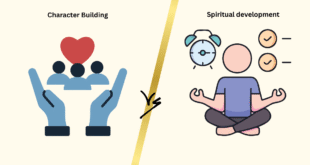By: Sidra Saad
In a world obsessed with class, titles, and wealth, Islam stands as a timeless reminder that before God, status means nothing.
Before the rise of Islam, Arabian society was deeply divided by status, lineage, and tribe. A person’s worth was measured not by their character or faith, but by their ancestry, wealth, and social connections. The noble looked down on the poor, slaves were treated as property, and tribal pride often fueled endless rivalries.
In a world where hierarchy defined humanity, Islam emerged with a revolutionary message that all human beings are equal in the sight of God, and that true honor comes only through righteousness.
When Prophet Muhammad ﷺ came with the message of Islam, he changed a society that was built on pride and status. He taught that all people are equal before Allah, and no one is better than another because of wealth, tribe, or race only because of their faith and good actions. The Prophet showed this through his own life: he treated the poor, the slaves, and the rich with the same respect.
He chose Bilal ibn Rabah, a former slave, to call the people to prayer, showing that honor in Islam comes from piety, not position. The Prophet ﷺ reminded everyone, “All of you are from Adam, and Adam was created from dust.” With this, he ended the idea that some people are born superior to others.
Today, our world sadly reflects the same pride and injustice that Islam came to erase. Many people measure others by their money, looks, or social class instead of their character. The rich and powerful often live above the rules, while the poor and weak are treated unfairly and silenced. Ego and arrogance have replaced humility and kindness. We see people looking down on others because of their jobs, clothes, or background forgetting that in the eyes of Allah, none of these things matter.
This attitude has created a society where oppression and inequality grow stronger, even though Islam teaches that all people deserve respect, justice, and compassion.
The Qur’an repeatedly emphasizes that all human beings are equal in the sight of Allah, and that no one is superior because of wealth, lineage, race, or social status. True honor and distinction come only from piety, righteousness, and a sincere heart. Islam rejects arrogance, pride, and oppression, reminding us that every person deserves dignity and respect. Some of the key verses include:
- Surah Al-Hujurat (49:13):
“O mankind! We created you from a male and a female, and made you into nations and tribes so that you may know one another. Indeed, the most noble of you in the sight of Allah is the most righteous of you.”
This verse emphasizes that nobility comes from righteousness, not tribe, race, or social position. - Surah An-Nisa (4:1):
“O mankind! Be mindful of your Lord, who created you from a single soul, and from it He created its mate, and from the two spread countless men and women throughout the earth.”
This highlights the common origin of all humans, showing that no one is inherently superior. - Surah Al-Isra (17:70):
“We have certainly honored the children of Adam and carried them on land and sea, and provided them with good things, and preferred them over much of what We have created.”
Allah grants dignity to all humans, not just to the rich or powerful. - Surah Al-Qasas (28:83):
“That home of the Hereafter We assign to those who do not seek arrogance upon the earth or corruption. And the (best) outcome is for the righteous.”
This warns against arrogance and pride, showing that worldly status cannot determine true success. - Surah Ash-Shu‘ara (26:88–89):
“The Day when neither wealth nor children will benefit anyone, but only the one who comes to Allah with a sound heart.”
On the Day of Judgment, only piety and sincerity will matter, not worldly power or status.
These above verses make it very clear how much Islam is against the status system built by today’s society.
A clear example of Islam’s commitment to equality is found in worship and pilgrimage. In Masjids, Muslims stand shoulder to shoulder in the same rows, regardless of wealth, social status, or background, showing that before Allah, everyone is equal.
During Umrah and Hajj, millions of believers perform Tawaf around the Kaaba together, dressed simply, without distinction between rich and poor, young or old. These acts of devotion remind us that true honor and unity come not from social hierarchy, but from shared faith, humility, and obedience to Allah.
In the end, I would like to conclude by saying that a person’s true worth is not measured by wealth, family, or social status. Islam teaches us to see the value in every human being and to treat everyone with respect and kindness.
By being humble, fair, and caring, we can follow this teaching and help create a world where people are judged by their character, not by their position in society.
 Edutarbiyah English Blog of Parenting and Tarbiyah
Edutarbiyah English Blog of Parenting and Tarbiyah



